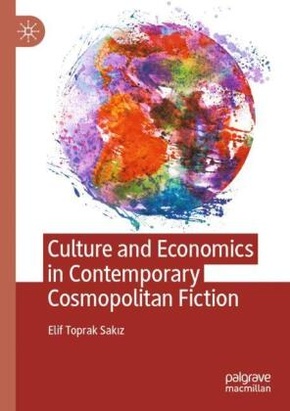
Culture and Economics in Contemporary Cosmopolitan Fiction
| Verlag | Springer |
| Auflage | 2024 |
| Seiten | 235 |
| Format | 21 cm |
| Artikeltyp | Englisches Buch |
| ISBN-10 | 3031449975 |
| EAN | 9783031449970 |
| Bestell-Nr | 03144997A |
This book investigates how culture and economics define novel forms of cosmopolitanism and cosmopolitan fiction. Tracing cosmopolitanism's transition from universalism to vernacularism, the book opens up new avenues for reading cosmopolitan fiction by offering a precise and convenient set of terminology. The figure of the cosmoflâneur identifies a contemporary cosmopolitan character's urban mobility and wandering consciousness in interaction with the global and the local. Posthuman cosmopolitanism also extends the meaning of cosmopolitan which comes to embrace the nonhuman alongside the human element. Defining narrative glocality, political hyper-awareness, and narrative immediacy, the book thoroughly explores how cosmopolitan narration forges direct responses to the contemporary world in postmillennial cosmopolitan novels. All of these concepts are elaborated in Ian McEwan's Saturday (2005), Zadie Smith's NW (2012), Salman Rushdie's The Golden House (2017), and Kazuo Ishigur o's Klara and the Sun (2021), to which world-engagement is central.
Inhaltsverzeichnis:
1. Introduction: Cosmopolitanism's New Orientations.- 2. New Intersections in Fiction: Cosmopolitanism, Culture and Economics.- 3. Narrative Glocality and The Cosmoflâneur in Ian McEwan's Saturday.-4. Vernacular Cosmopolitanism, Cosmopolitan Culture and Economics in Zadie Smith's NW.-5. Cosmopolitan Identity and Narration in Salman Rushdie's The Golden House: The Move Towards Vernacular Cosmopolitanism.-6. Posthuman Cosmopolitanism and Post-Covid-19 Sensitivities In Kazuo Ishiguro's Klara And The Sun.-7. Conclusion: The Genre of The Contemporary.- References.-Index.
